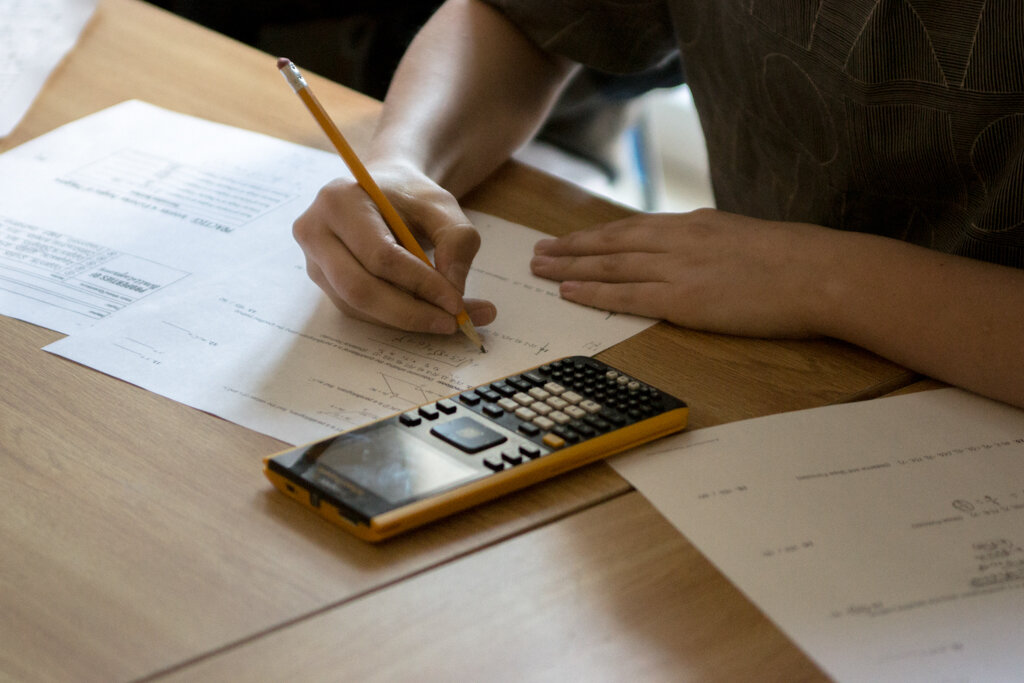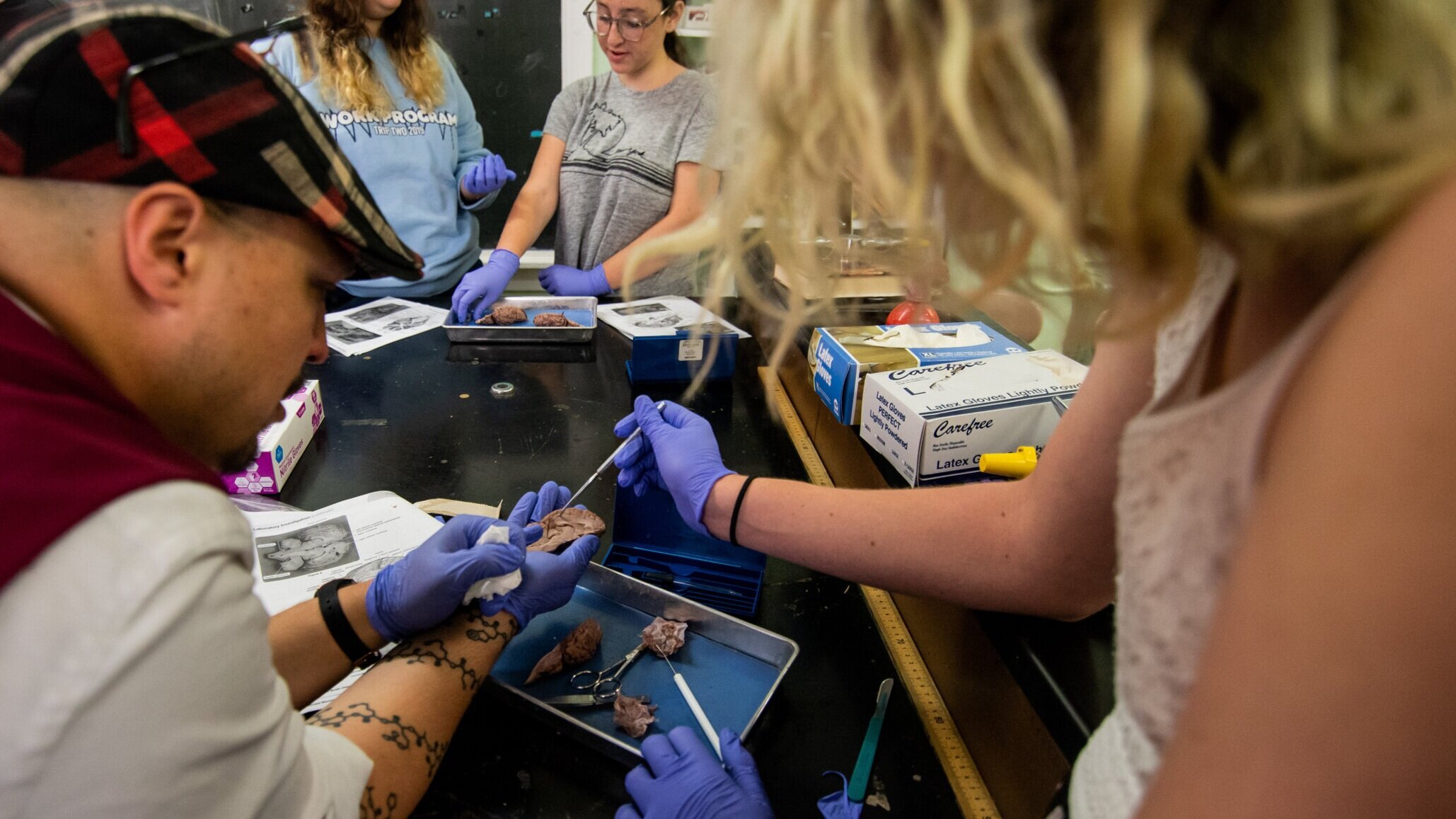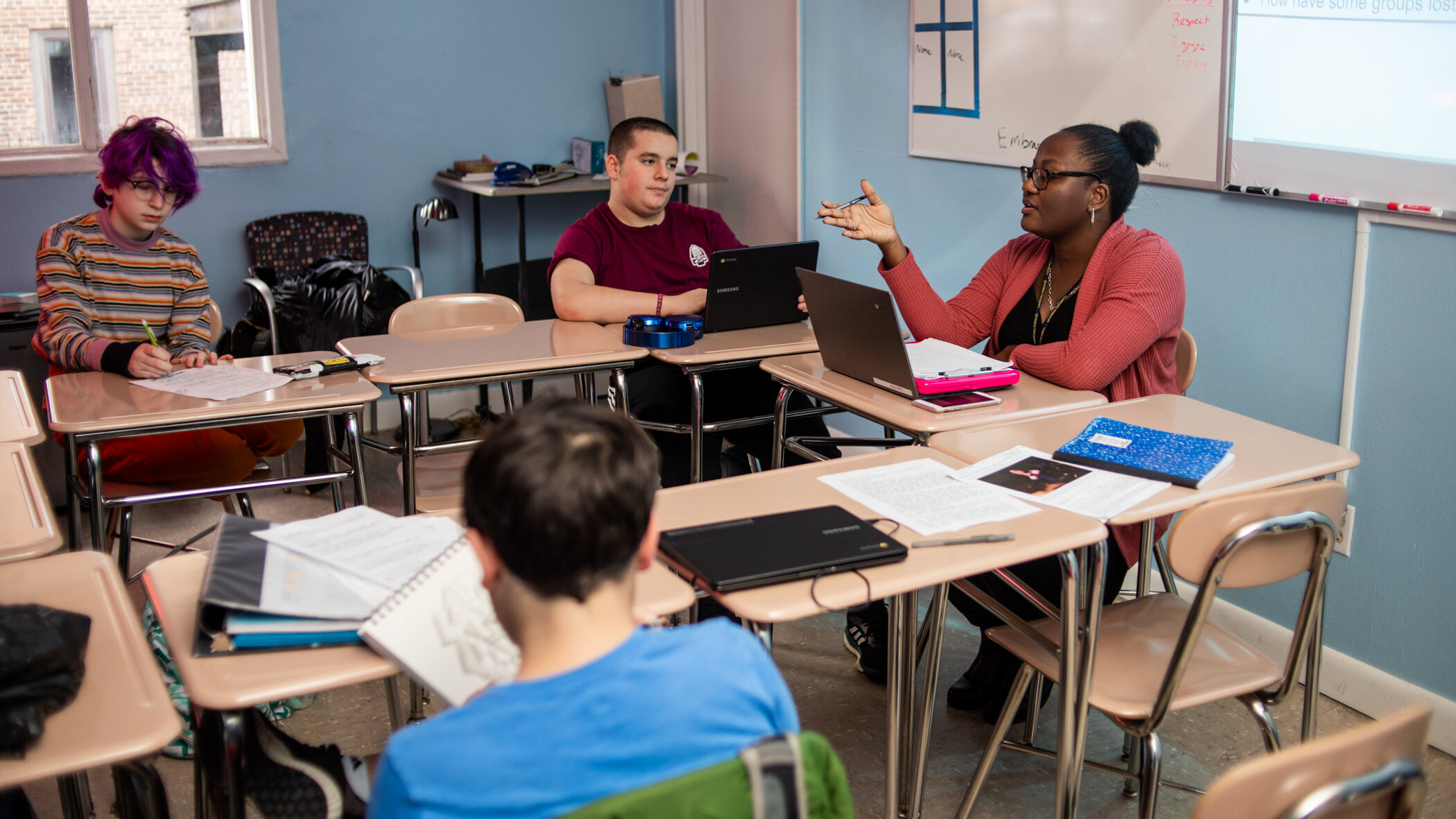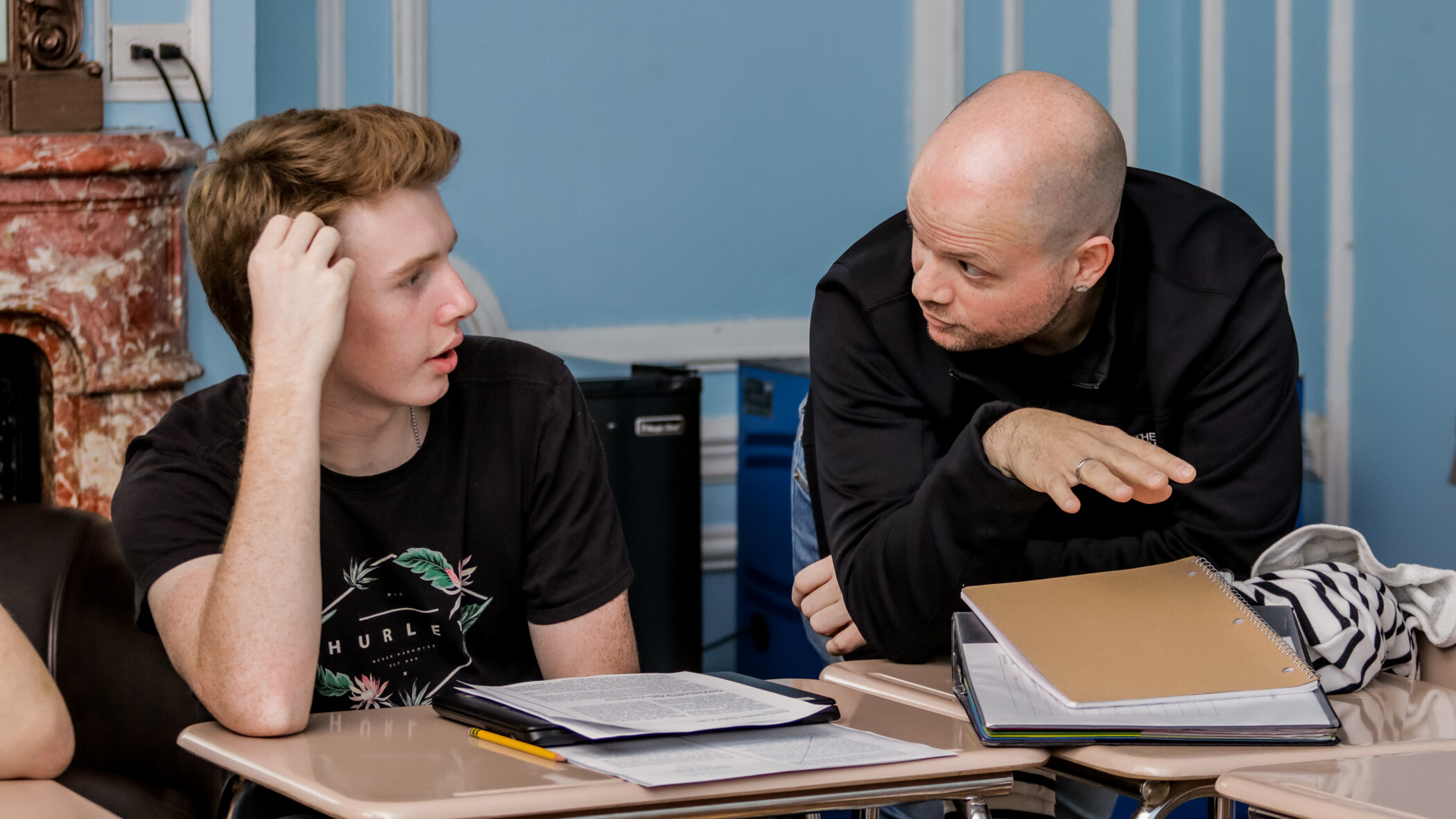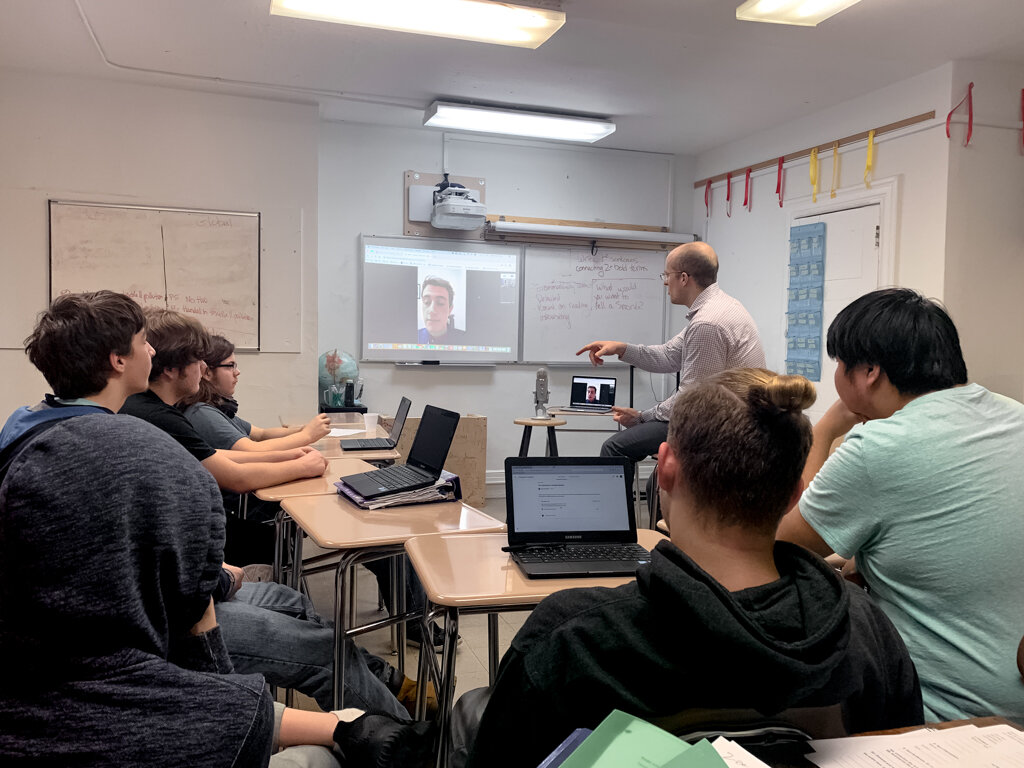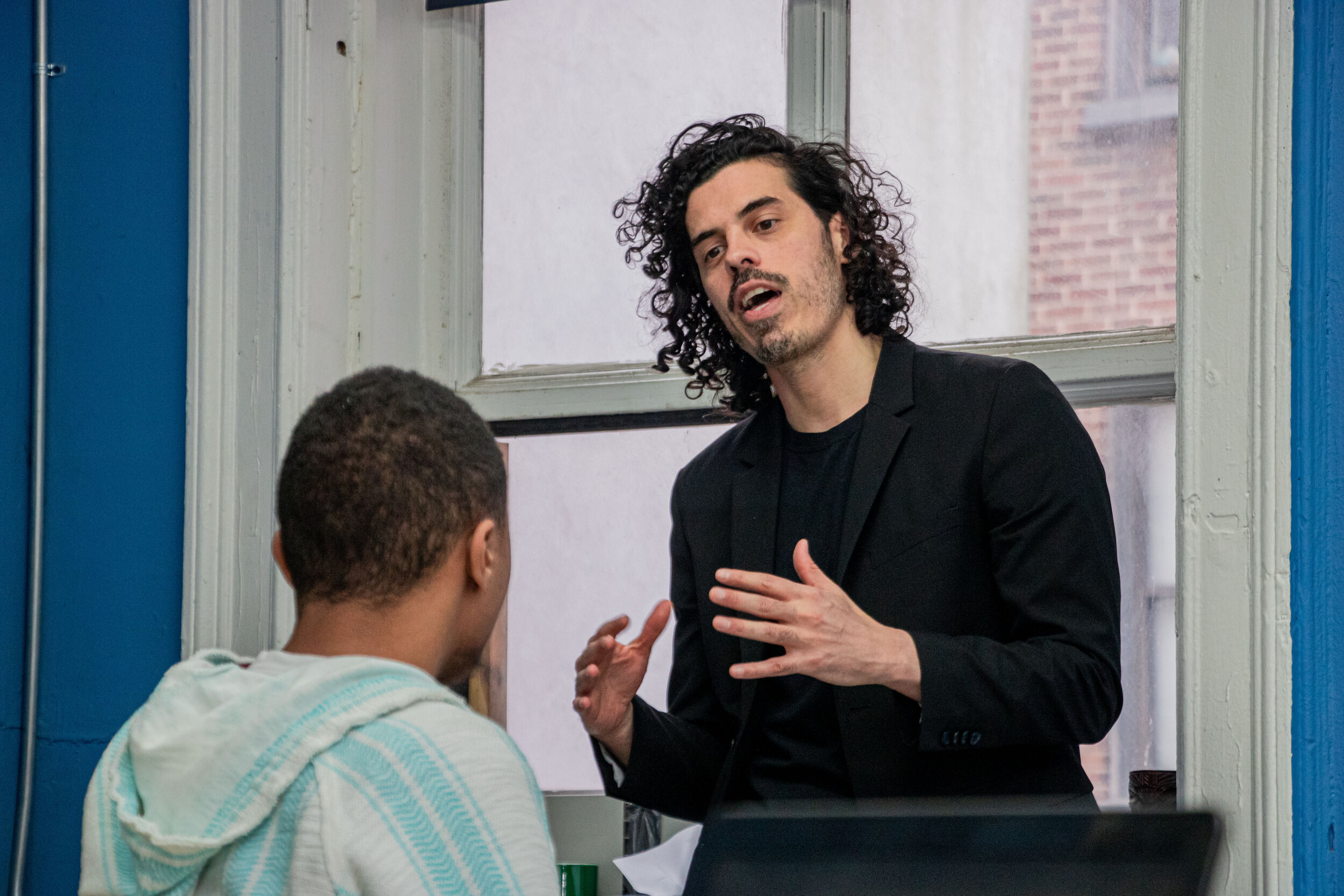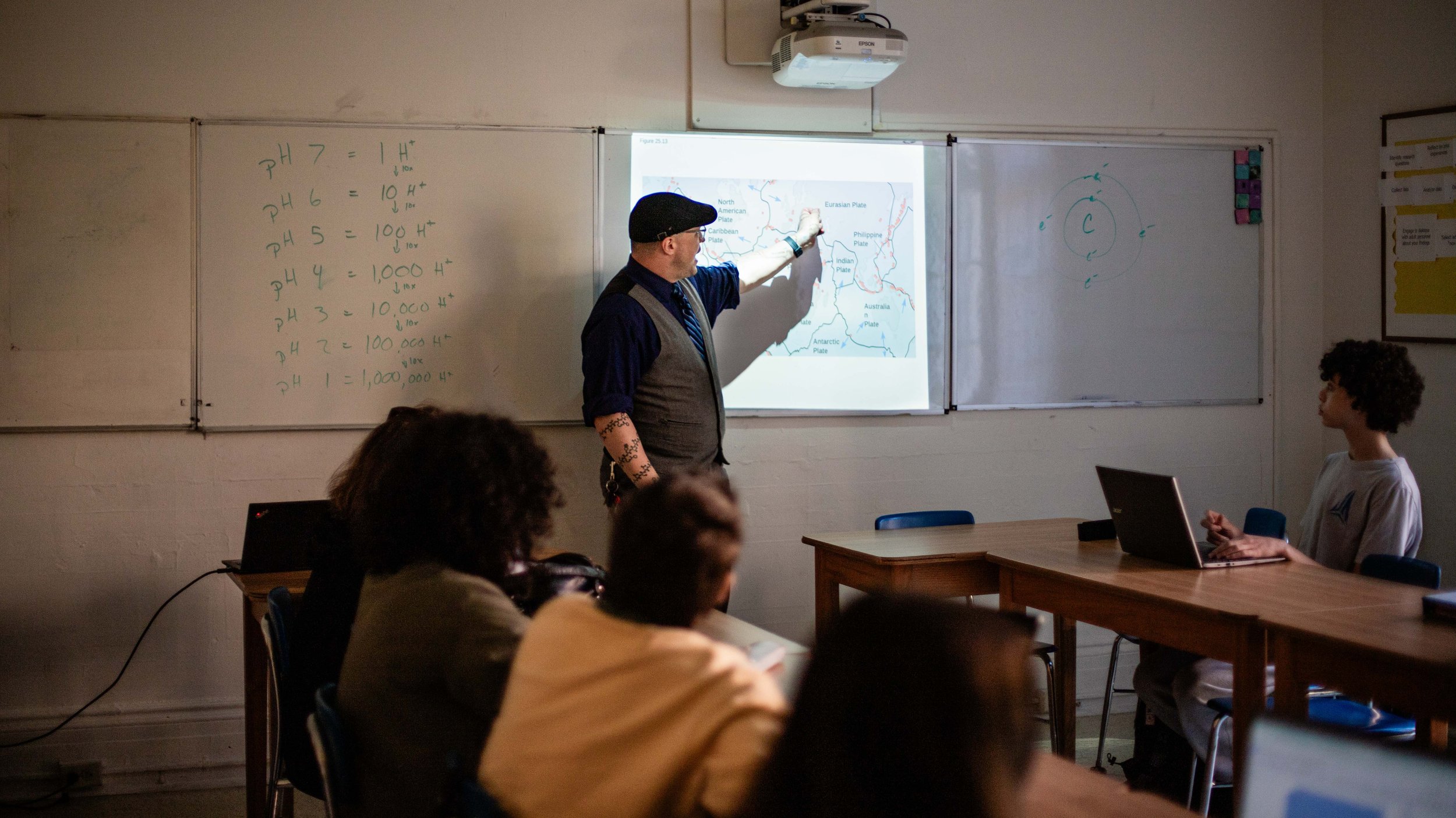
Stevenson embraces a college preparatory, liberal arts approach to academics – uniquely viewed through our clinical lens. Our curricula encompasses the academic disciplines expected of a New York City independent school. Students accrue credit toward graduation in required and elective areas on a quarterly basis.
Our academic content is specifically designed to be highly engaging. In-depth, project-based assignments provide practical application and an interdisciplinary approach. We use New York City as a resource and bring professionals into our classrooms to expand on studies and inspire further work. Students also meet with experts in their workplaces and where they give formal presentations.
Course placement is individualized based on each student’s skill readiness, social strengths and emotional needs.
Across all subjects, teachers build competencies in students’ critical thinking, perspective-taking and self-reflection. Teachers use the language of Dialectical Behavioral Therapy (DBT) in their classroom.
Below please find brief descriptions of each content area.
Mathematics
Stevenson courses address traditional areas in mathematics, including Pre-Algebra, Elementary Algebra, Geometry, Intermediate Algebra/Trigonometry, Pre-Calculus and Calculus. Stevenson also offers Logic courses. It is our goal to engage our students in a study of mathematics that intrigues them and fosters in them a desire to continue their study after leaving Stevenson. Placement in classes is primarily based on prior performance in math classes. Regular use of scientific calculators, graphing calculators and online interactive math resources are integrated into all coursework.
Science
The science program is activity and laboratory-based to enable students to learn from experiencing the effects of their manipulations on the world. Students learn to identify and solve problems, to recognize and use scientific methods, and to be to be observant and make models to replicate an analogy, idea, or structure. They develop and improve skills essential in science, pursue research, record work appropriately, and relate science to the world in which they live. Students learn to work efficiently on their own and in teams with peers. Cutting across physics, chemistry, and life sciences, Stevenson offers courses such as Earth Science, Advanced Biology, Chemistry, and Electricity and Magnetism.
English
English courses at Robert Louis Stevenson help students develop both reading and writing skills. The Literature offered is expansive and includes work from various time periods and cultures including Shakespeare, American literature, contemporary literature and British literature. Students are encouraged to become lifelong readers and are given the opportunity to read literature that is not only required as part of the curriculum, but they are also asked to choose their own books as part of independent reading. In addition to the rich literature that students are introduced to, they also develop their writing skills. Teachers work with students to help them become better analytical writers and thinkers. Students also learn other writing styles, such as self-reflective pieces.
Creative writing
Creative writing courses at Robert Louis Stevenson give students the opportunity to develop their creativity through writing. Teachers encourage students to take on a variety of writing, including journals, poetry, short stories, plays, etc. Students learn various writing techniques to improve their creative writing such as imagery, dialogue and character development. Throughout the course, students practice their writing skills, in addition to learning to share their work with their peers. Creative writing teachers at Stevenson place emphasis on encouraging students to read their work to their peers, allowing students to help each other improve their writing.
A Foot in the Door, Robert Louis Stevenson’s literary and artistic journal, is published once a year. Students submit their own creative writing, photography, and artwork to the journal. The Foot in the Door staff consists of several student editors whose job is to edit the submissions and choose which pieces will be put into the journal.
Computer Science
For students interested in computer science, Stevenson offers two courses. In Computer Science I, students learn the foundations of computer science and basic programming in JavaScript, with an emphasis on developing logical thinking and problem-solving skills. In Computer Science II, students have the opportunity to choose a customized learning path and delve deeper into an area of interest. Possible topics include object-oriented programming, cybersecurity, game design, virtual reality, web development, robotics, and preparing for the AP Computer Science exam.
History
Through the study of history, government and geography, students come to understand societies and cultures of the past and the present. The teaching of critical-thinking skills is paramount and emphasis is placed on helping students to develop empathy for people in different times and places. Students also learn how to analyze and evaluate both primary and secondary sources. In all history classes, students learn to express their ideas fluently in research papers, projects and during oral presentations.


